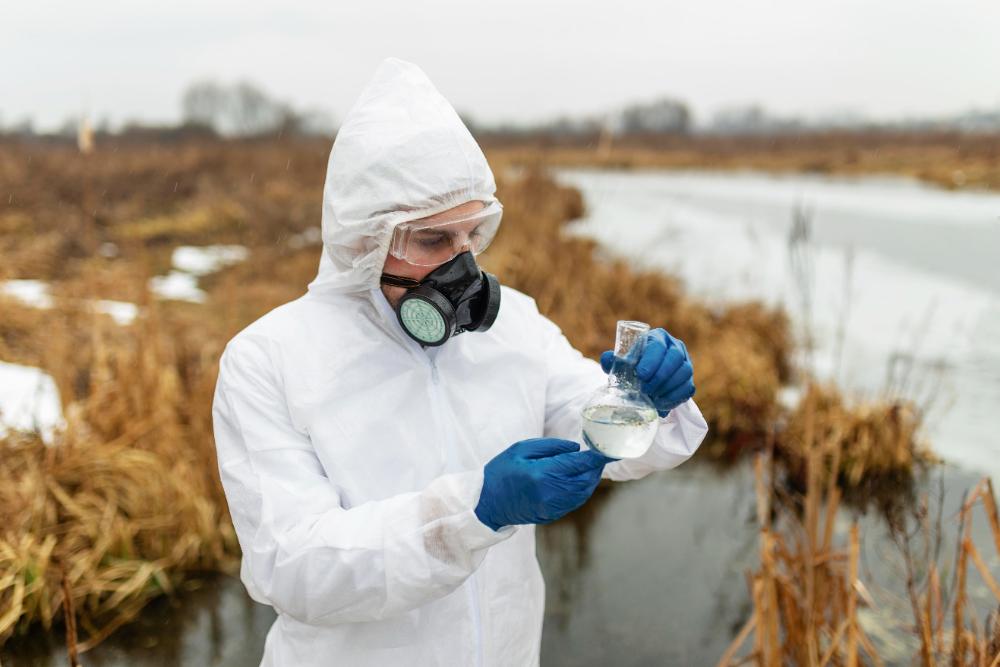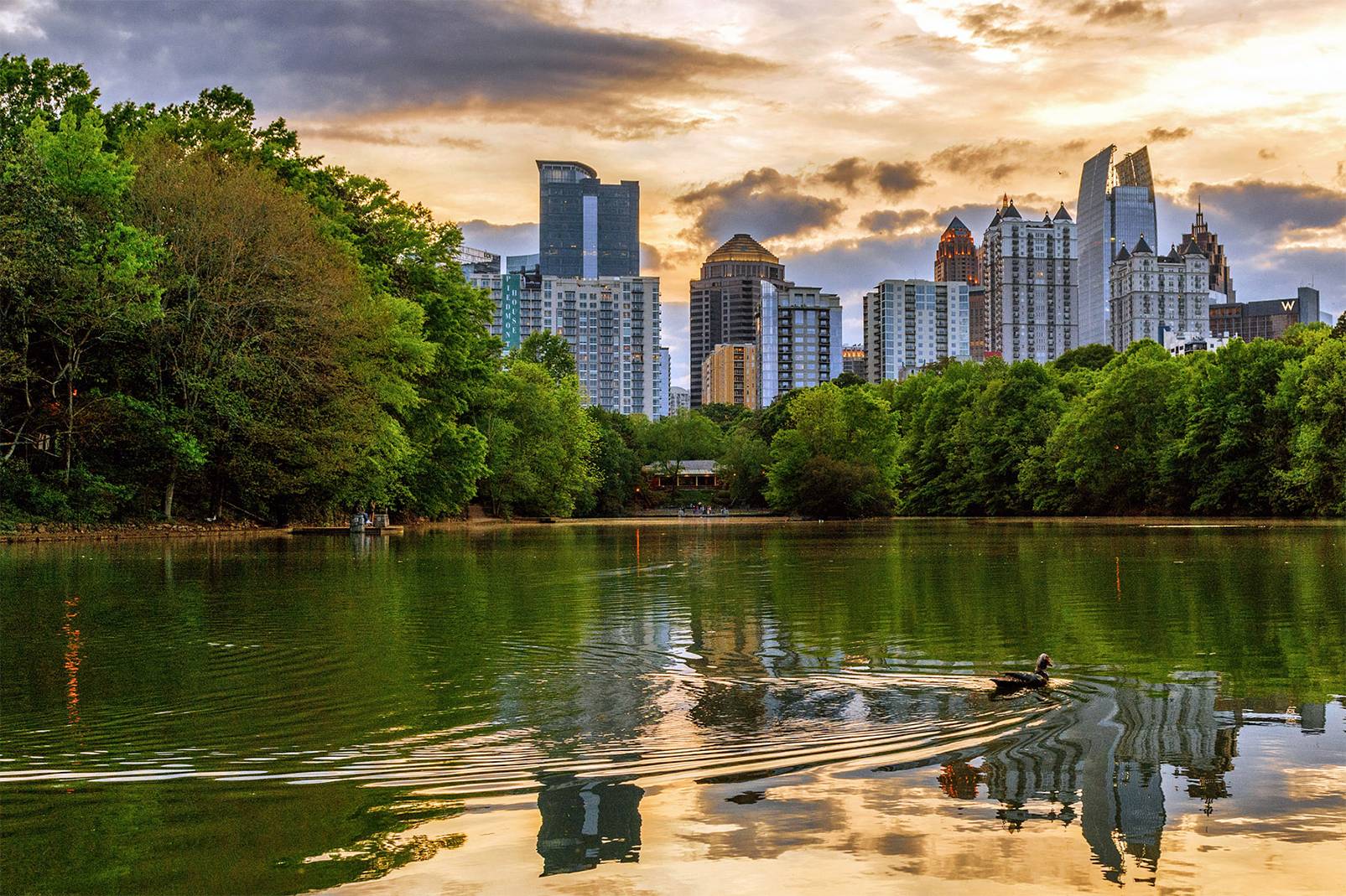
Glyphosate is the active ingredient used in many herbicides that kill weeds and plants, and it has been involved in court cases. Naturally, property owners with lakes and ponds on the premises are concerned about the safety of products with this ingredient.
In this brief article brought to you by Aquatic Restoration, we shed light on this herbicide. We’ll explore risks and precautions to take and suggest some best practices for safe usage. If you’d rather leave your lake and pond maintenance to trained professionals, then call Aquatic Restoration to hire a uniformed pond specialist in Milton, GA.
Glyphosate is the active ingredient in many herbicides used to control weeds and invasive plants. It works by inhibiting an enzyme critical for plant growth. While effective on land, its use in aquatic environments requires careful consideration because the impact depends on the formulation and the surrounding ecosystem.
The safety of glyphosate in water bodies largely depends on its formulation. Not all glyphosate-based herbicides are approved for aquatic environments. Products like RoundUp® include surfactants that can be harmful to fish and other aquatic organisms.
However, certain glyphosate formulations specifically designed for aquatic use are generally considered safe when applied correctly. Studies and regulatory reviews, including those by the U.S. Environmental Protection Agency (EPA) and the European Food Safety Authority (EFSA), have concluded that glyphosate-based products can be safe when used as directed.

The key is to adhere to proper application methods which minimize risks to the environment and non-target species. Improper use of glyphosate or applying it in excessive quantities can have significant consequences, including but not limited to:
If glyphosate use is deemed necessary, then choose one labeled for aquatic use and make sure to follow the instructions on/in the product’s packaging to ensure safe and effective application. Typically, this involves:
For those concerned about chemical use, there are alternatives worth considering. Some of these strategies for maintaining aquatic health include:
If you’re still scratching your head, then consider leaving the lake and retention pond maintenance to trained and experienced professionals. Contact Aquatic Restoration to hire uniformed specialists. Our team is ready to take your call or message today.
Dredging is an integral part of keeping lakes clean, healthy, and sustainable. This…
Lake management is an integral part of keeping your lake in peak condition. It involves activities such as lake…
There are many incredible benefits that come with restoring natural lake depth. Not only does it improve water quality…
When it comes to maintaining healthy water bodies, there are two primary methods that are often used: dredging and pond…
There’s peace of mind in knowing you have a reliable detention pond on your property. These man-made ponds temporarily hold…